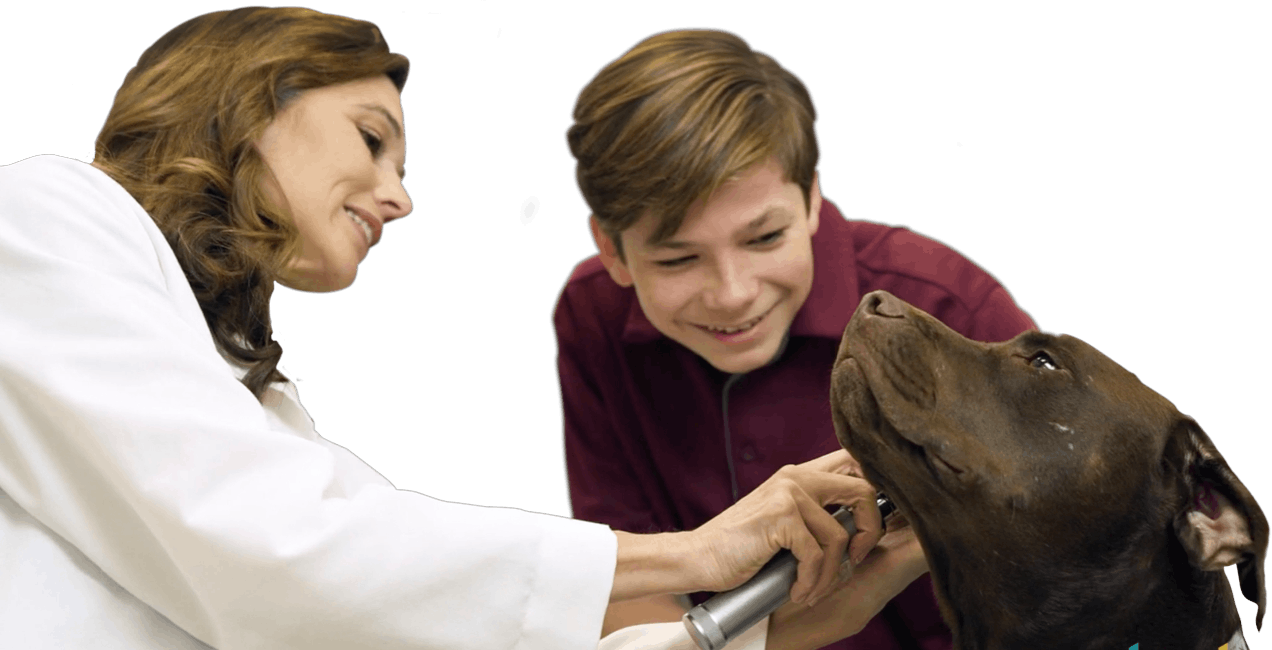What do veterinarians do? Where do veterinarians work? What do veterinarians wear? T his article series was created to highlight the incredible number of things veterinarians do, the many places veterinarians work, and the diversity of patients veterinarians treat.
The aquarists at the Vancouver Aquarium have noticed that a rockfish in tank A1 has swelling in both eyes and they have put the fish in a reserve tank so that the veterinarian can examine it. When he examines the patient, Dr. Martin Haulena makes a diagnosis: the rockfish has gas bubble disease.
Gas bubble disease is caused by the development of gas bubbles in a fish’s gills, fins and eyes that can cause tissues damage. Gas is pumped into aquarium water in order to provide necessary levels of oxygen for aquatic life. Because rockfish are cold-blooded creatures (their body temperature depends on the temperature of their environment), when the water they live in has a sudden rise in temperature or pressure, their bloodstream can become supersaturated with gas, causing gas bubble disease.
Dr. Haulena decides to perform surgery.
About the Procedure
The team brings the patient in to the surgery area. To minimize stress and to insure the safety of his patient, Dr. Haulena and his team sedate the patient. To do this, they put the patient in a tank that has an anesthetic agent dissolved in the water. When the patient has reached the proper level of sedation, the team moves the patient to a V-trough on the surgery table.
The patient is maintained at the proper level of sedation by passing water that contains the anesthetic agent through the rockfish’s gills during the procedure. This technique works much like a gas-anesthetic machine for land animals. The patient is maintained in a comfortable pain-free environment while the procedure is being completed.
While gas bubble disease can sometimes require the surgical removal of some tissue, Dr. Haulena believes he can cure the condition in this patient by removing the gas around the eye. With this disease, the gas can be located in three different areas around the eye. Dr. Haulena determines that the gas is located in the posterior chamber of the eye and then carefully works to remove this gas before it causes extensive tissue damage to his patient.
The patient is photographed, microchipped and recovered by the team.
Do You Want to Work with Fish and Other Zoo Animals?
Doctors who work in aquariums understand that their patients live in a different environment and are not used to being handled. These veterinarians take special precautions to insure the safety of both their patients and staff. Aquarium veterinarians must also understand the unique anatomy and physiology of their patients.
Dr. Martine Haulena is the staff veterinarian at the Vancouver Aquarium and at the Vancouver Aquarium’s Marine Mammal Rescue Center. If you want to become an aquarium veterinarian who treats rockfish and other aquatic animals like Dr. Haulena does, you should start today. Dr. Haulena says he knew he always wanted to be a marine veterinarian. He adds, “I was this geek kid who, at eight or nine made little biology projects for myself.” For today’s future veterinarians, he advises them to take advantage of the improved resources that are available today. He adds, “It is so easy with today’s multimedia and the internet to immerse yourself in your passion.”
“It is so easy with today’s multimedia and the internet to immerse yourself in your passion.”
If you are old enough, there may also be volunteer opportunities for you at your local zoo, aquarium or animal sanctuary. For children interested in becoming a veterinarian, they should consider attending camp at an aquarium, zoo or animal sanctuary. These camps are great opportunities to get hands-on animal experience and learn about wildlife in a safe environment. In fact, the Vancouver Aquarium offers Aqua Camp programs to students of all ages.
Do You Want to See More?
There is a lot more to see on Vet Set Go. The article “Diving Into Veterinary Medicine at the Georgia Aquarium” takes a close look a life of another aquatic animal veterinarian.
Aquarium veterinarians like Dr. Haulena are specialists and part of the American College of Zoological Medicine. If you want to see other zoo animal specialists in action, watch “Meet Zoo Veterinarians” video. You can also see other zoo cases by viewing “Bonobo Echocardiogram” and “A Pain in the Neck” videos. These videos will let you get an in-depth look at two interesting zoo case













Comments Add Comment
Allicat17
Wow, doing surgery on a fish sounds really hard!
Farm.Vet.Miah
doing surgery on a fish seems hard and cool but im going to be a big animal vet like horses and cow and cattle.
Dr. Chris Carpenter
That's a great choice Farm.Vet.Miah. We really need more large animal veterinarians! So happy that is what you want to do.
Want to add a comment?
In order to comment you need to login or join Vet Set Go